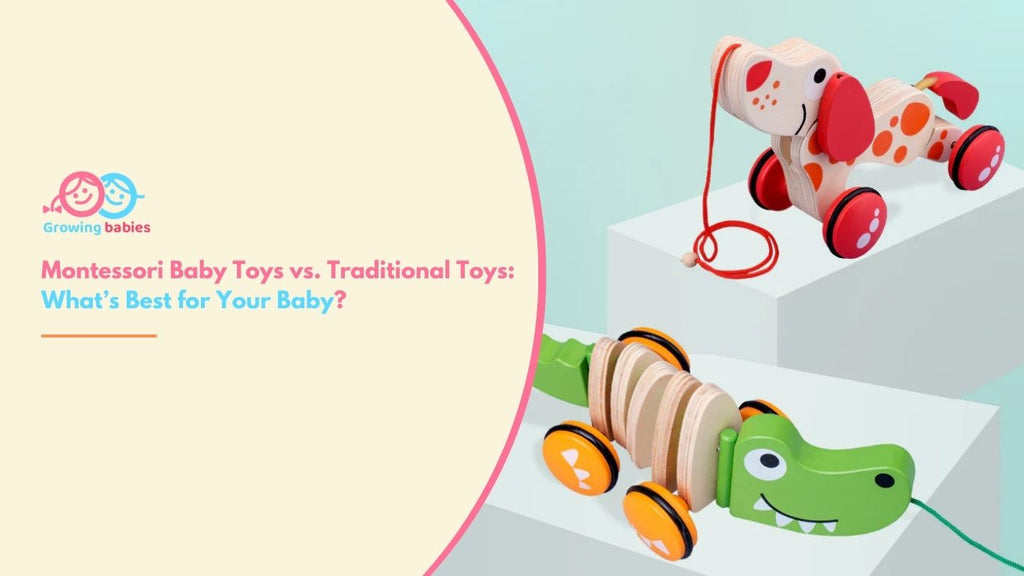Montessori Baby Toys vs. Traditional Toys: What’s Best for Your Baby?

08 January
2025
The Montessori method, developed by Dr. Maria Montessori, emphasizes natural learning through purposeful days. Montessori baby toys are specifically designed to promote independence, sensory exploration, and developmental growth. These toys are usually made from natural materials like fabric and wood, which feature simple designs that help babies focus on particular skills without overwhelming them with excessive stimuli.
Key features of Montessori Baby Toys
Montessori toys stand out for their minimalist approach. They often come in neutral colors and focus on a single concept or skill at a time. For example, a simple wooden rattle helps develop grip strength and tracking skills, while a mirror is attached to a pull-up bar that encourages movement and self-recognition. These toys are designed to grow with your baby and also offer different learning opportunities as your child develops new abilities.
Development Impact Comparison
Research suggests that both toy types can support baby development but in different ways. Montessori baby toys encourage longer attention spans and independent problem-solving skills, as babies must figure out how to manipulate objects without electronic guidance. Traditional toys, meanwhile, can help develop cause-and-effect understanding and provide multi-sensory stimulation that many babies find engaging.
Making the Right Choice for Your Baby
The best choice often depends on your parenting philosophy and your baby's individual preferences. Some babies thrive with the focused, calm environment that Montessori toys create, while others may need more stimulation from traditional toys to stay engaged. Consider creating a balanced toy collection that includes elements from both approaches.
Practical Considerations
When selecting toys, consider factors beyond educational philosophy. Montessori toys often come with a higher price tag due to their natural materials and craftsmanship, but they typically last longer and can be passed down to siblings. Traditional Montessori baby toys may be more affordable and readily available, though they might need battery replacements and could wear out more quickly.
Safety and Quality Assessment
Both toy types must meet safety standards, but their construction differs significantly. Montessori toys generally have fewer small parts and are made from non-toxic materials, while traditional toys undergo rigorous testing for electronic safety and durability. Always check age recommendations and safety certifications regardless of which type you choose.
Finding the Right Balance
Many parents find success in combining both approaches. For example, you might use Montessori toys during focused play sessions while keeping traditional toys available for entertainment and variety. This hybrid approach can provide your baby with the benefits of both worlds while maintaining engagement and supporting various developmental needs.
Remember that every baby is unique, and what works for one may not work for another. Observe your baby's interactions with different Montessori baby toys and adjust your selection based on their interests and developmental stage. The most important factor is that the toys you choose support your baby's growth while keeping them safely engaged in play. If you want to know more about it, get in touch with us at Growing Babies.



























